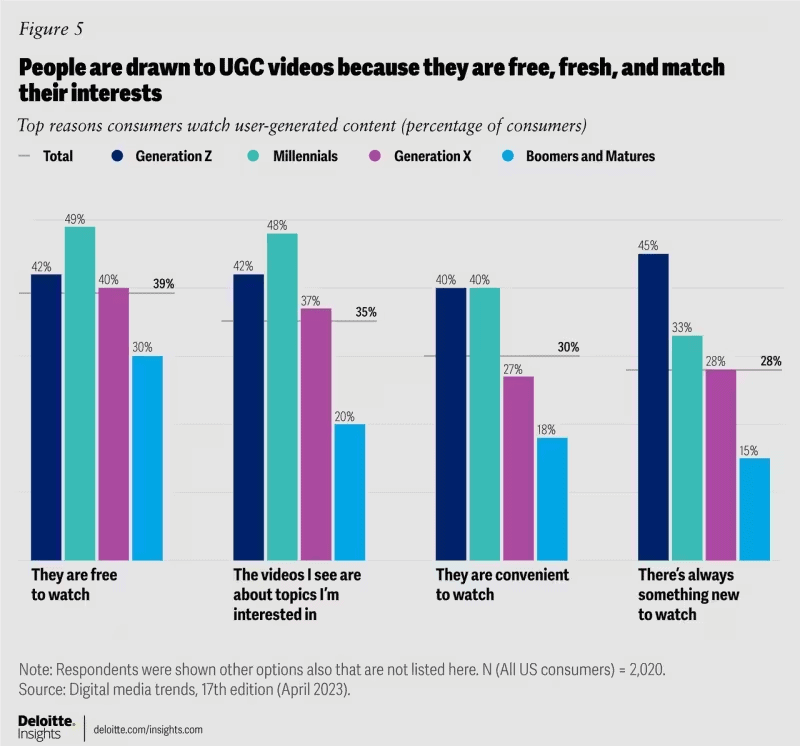Reputation is everything, right?
How your business is perceived and talked about on social media can make or break it. After all, how many times have you made a purchase from a business you’ve seen criticized on social media?
Social media reputation management isn’t the sole domain of PR managers and influencers. And it’s about more than choosing the right social media profile image. It’s a top-down strategy that all businesses, large and small, should build.
In this blog post, we explore the importance of social media management and offer a 7-step guide to implementing it in your business.
What is social media reputation management?
When you run a business, your reputation and branding on social media are vital. Do you want to increase followers on Instagram or any other platform? First, users need to have a good impression of you.
Social media reputation management is when you carefully track your social media presence across platforms by monitoring mentions, comments, and reviews relating to your business. This process is made more efficient and effective with the use of social listening tools, which can help you gain valuable insights and stay on top of your brand’s online reputation.

Free to use image sourced from Unsplash
For example, if you manage a platform as a service company, you might already regularly check online review sites, from Google to Trustpilot. But it’s worth also checking social media to keep an eye on how your brand reputation stands on platforms like Instagram and X.
By tracking and monitoring comments and posts, you can be proactive in dealing with any negative perceptions of your brand.
Social media reputation management is about more than just checking comments every now and then. You need to have a monitoring strategy in place. Some typical components of social media reputation management include:
- Engaging users: In addition to monitoring, you should aim to engage with social media users. Respond to comments and messages quickly and publicly.
- Responding to feedback: Even if feedback is negative, you shouldn’t ignore it. Be responsive and proactive to show users that you care about your customers and their feedback.
- Regular content: Your social media presence is defined largely by the content you put out there. You can manage your reputation and your brand perception by regularly creating and posting new content.
- Crisis management: How you act on social media can make or break your business during a PR crisis. It’s not only important to act swiftly if a crisis does appear. You should also take action early to reduce the chances of something going wrong.
- Consistent messaging: Consistency is key when it comes to your social media reputation. You should have a clear brand voice and make sure your approach to every social media platform is identical.
Why is social media reputation management important? 5 key benefits
Builds that all-important trust and credibility
Responsiveness from businesses can foster trust and help build credibility. Actively and publicly responding to comments shows that you care about customer opinions.

Free to use image sourced from Unsplash
For example, let’s imagine you are a cloud communications platform, and you receive a complaint on your Facebook page. A customer says they’re experiencing an SPF validation error when sending emails via their platform. You quickly respond, fixing the glitch and thanking the user publically for pointing out the problem.
Thanks to a timely and transparent response, you gain two benefits. Firstly, the business shows proof to the customer that they are listening. Secondly, any potential customers who your response will be impressed by the quality of your service.
Gives you insights into your customers
As a business owner or manager, you’re probably wishing you could read your customers’ minds and figure out exactly what. Social media reputation management can help you do just that.
By regularly interacting with your customers online, you can get insights into what your customers like and don’t like. You can collect these insights and use them when developing products or new marketing tactics.
For example, an online clothing store posts images of a new leather blazer for men on Instagram and asks users to share what they think of the new item in the comments. Lots of customers love the product, but many comment that they’d prefer a zip to buttons.
The company uses these insights to develop a new item with a zip and market it specifically as being created in response to customer feedback.
Helps with damage control
Sometimes, things go wrong. Your app is down for a few hours. You recall a bad batch of products. These mistakes and glitches can turn into full-blown PR crises if they’re not managed correctly.

Free to use image sourced from Unsplash
By actively monitoring responses to what’s gone wrong, such as online mentions or comments on your posts, you can address criticisms before the situation escalates. A quick response that is consistent across platforms can minimize the damage of any crisis.
For example, a business that provides hosting apps may find that, across their platforms, there’s an unexpected outage. Before customers can flood social media with complaints, the company posts across their social media pages about the downtime. They explain what’s happened and give a timeline for when they’ll be back up and running again. Similarly, a company selling wholesale frames in LA might notice a surge in negative feedback due to a delayed shipment. By addressing the issue on social media and their website, explaining the cause of the delay, and providing an updated delivery schedule, they can mitigate customer frustration and maintain trust.
Better online visibility
When promoting your business or brand on social media, you need to remember the importance of algorithms. Platforms like Facebook and Instagram, for example, tend to show content to social media consumers that already has high engagement. That means by encouraging users to engage with your posts (and by engaging with them, too), you can push your posts to the top of the feed.
For example, an application integration solutions provider might share a tutorial video on their social media. This video shows users how their integration tool allows them to integrate their ecommerce platform with their accounting software. They ask customers to leave questions in the comments.
By encouraging users to watch a video and comment, the video will be more visible on potential customers’ feeds.
Higher ROI for your marketing efforts
Having a positive online reputation is its own form of marketing. It’s less costly than paid advertising and can even be more effective since users will see positive comments from customers rather than simply being pushed a sponsored post.
Happy customers commenting on your posts could encourage new customers to make valuable conversions. This might include making a purchase or signing up for a free trial. Even better, you’ve achieved these goals without needing a huge marketing budget.
Social media reputation management isn’t free since it requires the time and effort of your social media managers, but it does have a high return on investment (ROI).

Image sourced from deloitte.com
You can also leverage user-generated videos for cheap marketing. For example, a small business loves the cloud phone system features that your company provides, so they share a testimonial video on social media.
Your company would then repost this video on your own social media pages. This would then help you get new leads without the usual cold calling or paid ads required.
How to develop a social media reputation management strategy
Now you know the importance of social media reputation management, how do you go about integrating this into your business processes? While there’s no one-size-fits-all approach, these seven steps can be started today.
Choose the right platforms
While a consistent approach to cross-posting on social media is useful, your industry will determine which platforms you need to be the most proactive on.
You need to identify where your target audience is spending their time and engaging with posts. B2B industries like SaaS tend to focus on improving their Linkedin profiles. B2C online industries like retail prefer to optimize images for Instagram or post videos to TikTok.

Image sourced from meltwater.com
Consider, too, what sort of content will be the most useful and engaging for your customer base. Video tutorials for cloud software are best shared on LinkedIn and YouTube, while short-form videos showcasing homeware and decor will get more engagement on Instagram, Facebook, and TikTok.
Get the right monitoring tools
To effectively manage your social media reputation, you don’t have to go it alone; you can rely on reputation management tools. There are various useful tools available, ranging from free but effective monitoring options to advanced consumer intelligence suites. Here are a few you might consider:
- Google Alerts
This free tool lets you set up alerts for keywords or phrases being mentioned on the web. You can ensure you never miss a mention of your company or specific niche.
Google Alerts tends to focus on indexed content, so it’s less effective for social media monitoring. That said, it can be essential for getting ahead of any PR crises or simply making sure you’re always up to date on conversations about your industry.
- Mention
Mention is more comprehensive than Google Alerts since it covers everything from news sites to social media. It provides real-time alerts and incredibly useful analytics so you can track brand perception over time.
- Brandwatch
If the analytics feature of Mention sparked your interest, you could find even more of what you’re looking for in Brandwatch. Brandwatch offers alerts and analytics but also has advanced analysis tools like segmentation, insight into competitors, and visualization tools.
Create a response protocol
Consistency is key when it comes to social media reputation management. That’s why you and your entire team should have a clear-cut, standardized response protocol in place.
A response protocol is when you develop guidelines for how and when to respond to comments, mentions, and reviews (both positive and negative). Your protocol will set out a response timeframe and tone of voice and may even include template responses.
The response protocol should have an escalation plan in place. While plenty of comments can be handled by a social media assistant, there may be certain interactions that need to be passed on to a manager.
Finally, consider integrating your market research strategy into your response protocol. Ensure that comments and reviews are collected and ready to be analyzed by your marketing team.
Offer solutions
Negative feedback never feels good, but it does offer a chance for you to boost your social media reputation. Rather than being confrontational, be constructive and offer solutions.
Start by acknowledging any mistakes you may have made and be proactive in the solutions you offer. This shows users that you care about every customer, not just the happy ones.
Negative feedback is also a chance for your business to improve and learn. Collect regular reviews to see where you’re falling short and where your product or service could be improved.
Encourage brand advocacy
The first step in creating brand advocates is to encourage customers to post reviews online. This can be as simple as a follow-up email asking customers to leave a review after they’ve made a purchase or signed up for your service.
Brand advocacy can go a step further when reviewers take to social media. Encourage and incentivise customers to review your product or service online, particularly rewarding anyone willing to provide photo or video testimonials.
Post relevant, regular content
Social media reputation management isn’t just about responding to comments or encouraging feedback. First things first, you need a regular stream of content to engage customers.

Image sourced from hubspot.com
It’s vital that this content be relevant, too. Ask yourself: what sort of content do my customers need? What will excite them or educate them? Are customers asking, what is WebOps? Create a video or blog post answering the question. Your customers’ needs and preferences should be at the forefront of your content creation.
Review and refine
Social media reputation management isn’t a static activity. You should continually review your efforts and refine your tactics.
Analytical tools can help you track brand perceptions and reviews over time, helping you see how effective your strategies are. You could even try out some user testing, such as A/B testing, to compare strategies.
As your business grows, your social media presence and branding will need to change and grow with it. Your current tactics probably won’t cut it in international markets or with bigger clients. Always be prepared to adjust your strategies.
Final thoughts on social media reputation management
When promoting your business on social media, user perception and comments are as much a form of advertising as the posts themselves.
You can’t guarantee a flood of positive comments on every post you make. However, by implementing the above steps, you can create a consistent social media strategy that prioritizes reputation management.

